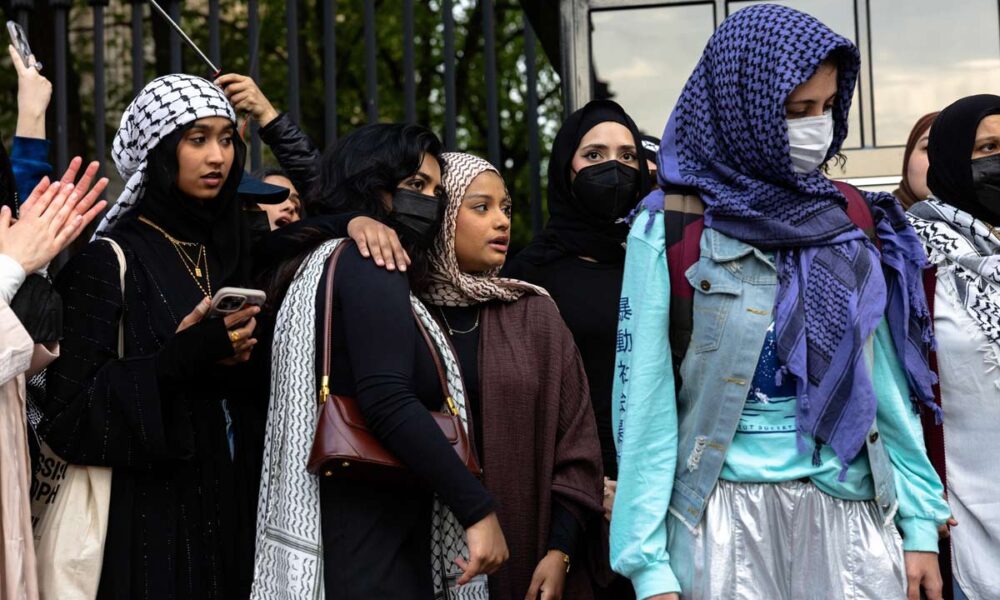In an increasingly turbulent world, the pursuit of peace stands as a towering aspiration. The Bahá’í Faith offers a compelling framework for achieving this aspiration, rooted in divine principles that advocate unity, community, and the elevation of human consciousness. The path to a harmonious global society, as envisioned by Bahá’ís, is intricately woven with teachings that encourage individuals and communities to engage in meaningful actions for peace. Herein lies an exploration of how Bahá’í teachings foster a vision of peace in our time and outline pivotal strategies for engendering a better world.
At the core of Bahá’í teachings lies the profound assertion that humanity constitutes a single unity. This doctrine emphasizes the interconnectedness of all peoples and the imperative to rise above prejudice, whether it be racial, religious, or national in origin. The Bahá’í perspective posits that the seed of conflict often germinates from categorical divisions. In recognizing the oneness of humanity, Bahá’ís cultivate an understanding that transcends superficial differences, thereby laying a robust foundation for dialogue and reconciliation.
Moreover, Bahá’í teachings advocate the importance of justice as a precursor to peace. It is posited that true peace cannot flourish in an environment where injustice prevails. The principles of equity and fairness are not merely ideals; they are actionable imperatives that Bahá’ís strive to manifest in their daily lives. The concept of justice, as articulated in Bahá’í texts, calls for an unyielding commitment to uphold the rights of every individual. This commitment engenders a climate where grievances can be addressed equitably, thus mitigating discontent and paving the way for enduring peace.
Furthermore, education plays a pivotal role in the Bahá’í vision for a peaceful world. The Bahá’í teachings underscore the transformative power of education in fostering critical thinking, compassion, and ethical behavior. An educated populace is better equipped to engage in constructive dialogues, challenge prevailing injustices, and contribute to societal betterment. Bahá’ís emphasize the necessity of education for all, regardless of gender or socio-economic status, as it is believed to be a fundamental human right and a catalyst for global harmony.
Integral to the Bahá’í understanding of peace is the recognition of the spiritual dimensions of human existence. Peace is not merely the absence of conflict; it encompasses the cultivation of inner tranquility and spiritual well-being. Bahá’ís are encouraged to develop their character and spiritual faculties, which further equips them to contribute positively to society. Prayer and meditation are central practices that foster this inner serenity, enabling individuals to approach challenges with grace and humility. This inner peace, in turn, radiates outward, influencing communal interactions and broader societal dynamics.
Community building also occupies a central place in the Bahá’í vision for peace. The establishment of vibrant, cohesive communities is crucial for nurturing relationships grounded in trust and mutual respect. Bahá’í communities engage in constructive endeavors such as collaborative service projects and social action initiatives that directly address local challenges. These efforts not only serve to alleviate pressing issues but also strengthen communal bonds, engendering a collective sense of responsibility toward fostering a peaceful society.
The Bahá’í principles of consultation further enhance the framework for peace. This method of collective decision-making encourages inclusive dialogue, where diverse perspectives are valued and integrated into the decision-making process. Consultation is not simply a procedural necessity; rather, it is viewed as a sacred act that fosters unity and understanding among individuals, ensuring that all voices are heard. By prioritizing consultation, Bahá’ís cultivate an atmosphere of respect and collaboration, which is essential for navigating conflicts and enhancing communal well-being.
On a broader scale, Bahá’í teachings advocate for the establishment of global governance structures that prioritize peace, justice, and equity. The concept of a World Tribunal for the resolution of international disputes reflects the Bahá’í commitment to fostering global harmony through cooperative mechanisms rather than destructive confrontations. This vision extends to the promotion of economic systems that are equitable and sustain all members of society, thus addressing root causes of conflict and disenfranchisement.
The cultivation of positive relationships among nations is paramount in the Bahá’í vision for peace. Interfaith dialogue and collaboration are encouraged, reinforcing the notion that religious differences need not impede mutual respect and understanding. Bahá’ís actively engage in efforts to bridge divides among various religious and cultural groups, reinforcing the idea that peace is attainable through collective human action founded on spiritual principles.
Finally, the Bahá’í teaching of the harmony of science and religion elucidates the necessity of a balanced approach to knowledge and understanding. In promoting empirical inquiry as complementary to spiritual insights, Bahá’ís argue for a comprehensive understanding of reality that informs ethical decision-making. A society that embraces both scientific inquiry and spiritual wisdom is likely to cultivate a more just and peaceful ethos, moving beyond mere tolerance to authentic acceptance of diversity.
In conclusion, the teachings of the Bahá’í Faith present a holistic and actionable framework for realizing a peaceful world. Through the embrace of unity, justice, education, spiritual growth, community building, consultation, global governance, interfaith dialogue, and the harmonization of science and religion, Bahá’ís illuminate a path toward a more harmonious existence. This vision invites individuals and communities to engage actively in the transformative processes necessary for forging a more just and peaceful society, thereby contributing to the ultimate goal of peace in our time.
